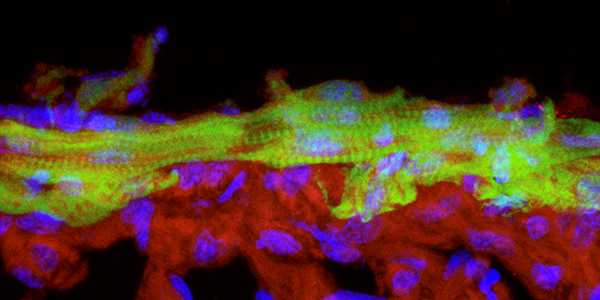Stem cell potency
Summary
During embryo development, the potency of the zygote is deployed through coordinated and stereotypical changes in cell behaviors and processes of tissue patterning, ultimately resulting in the formation of an entire, highly complex organism in a relatively short period of time. Throughout this process, the developmental potency of individual cells, i.e. their ability to give rise to cells of a different type than their own, is progressively lost, so that somatic cells in adult individuals retain very limited potency (such as in rare adult stem cells) or show no potency at all.
Our laboratory is interested in understanding the mechanisms that govern the degree of potency of human somatic cells, and how it can be experimentally increased for conditions where doing so may be of biomedical relevance. Specifically, the context in which we investigate these issues is mainly centered on the paradigm of cardiac regeneration/repair. Overall, our research takes advantage of a variety of experimental paradigms (zebrafish heart regeneration, human iPSC generation and differentiation), approached from a multi-disciplinary perspective, ranging from bioengineering approaches to 3D stem cell differentiation to single-cell genetic lineage tracing analyses and genetic manipulation of human cells, aimed at tackling important current issues in biology and biomedicine, such as the mechanisms that control the establishment and maintenance of developmental potency, the initiation and progression of the regenerative process, and the differentiation and functional maturation of human cardiomyocytes, and the development of genuinely human models of human disease.
204
Publications

Principal investigators
Team
- Raya Chamorro, Angel


